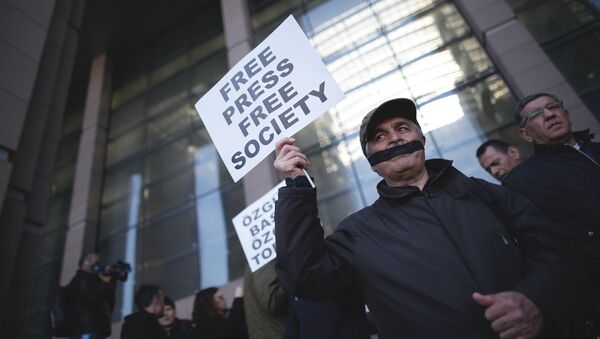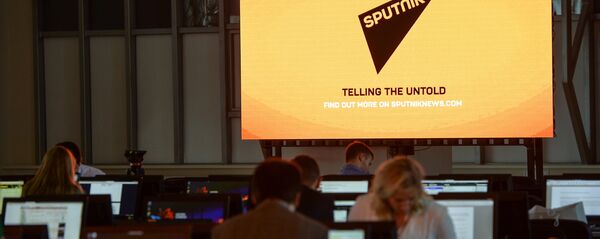Baris Yarkadas, a member of parliament for the opposition Republican People's Party (RPP), told Sputnik Turkey that TIB has overreached its powers by blocking the site's access, and that blocking the site is counter to Turkey's constitution and an infringement of citizens' rights to information from alternative sources.
"Publications from Sputnik showed an alternative view of problems that Russia and Turkey don't agree on. TIB, following the authorities' orders, completely blocked access to these publications, analytical articles and commentaries, which voice a point of view different to the opinion of the Turkish leadership," Yarkadas said.
"TIB's actions are completely unacceptable. Only a court can make a decision about whether Sputnik's publications have broken Turkish law. It seems that TIB thinks it is above the law."
Yarkadas said that blocking Sputnik is a short-sighted attempt by the Turkish government to further conflict with Russia, in the hope of benefitting domestically.
"You can't call such actions anything other than short-sighted childishness."
"Blocking access to a Russian news site is also a kind of signal to nationalism circles. The authorities are trying to say, 'Look how we are fighting with Russia.'"
"It's not a serious approach, it's perfect childishness," Yarkadas said.
Ayhan Bilgen, press secretary of the pro-Kurdish Peoples' Democratic Party (HDP) called the actions of the Turkish government proof of increasing censorship in Turkey, and referred to recent attempts to censor the media in other countries.
"The authorities' actions against the media are the most important proof of Turkey's movement into authoritarianism. The decision to close access to the Sputnik website, together with pressure on a series of foreign TV channels and the launch of legal proceedings against them, demonstrates the Turkish authorities' widening scale of censorship of journalists," Bilgen said.
Iranian journalist Hassan Hanizadeh told Sputnik that Russian news services play a vital role in disseminating news.
"The Russian media has shown over many years that its primary task is to bring the truth and correct information to the people. In all these years Russian media has never carried out a propaganda campaign against any of the region's political regimes."
"The Turkish government is trying to create political isolation in the public consciousness, but that won't help Turkey to get out of the crisis it finds itself in," Hanizadeh said.
"In recent months we have seen aggression from Turkey in its relationship not only with Russia, but with its close neighbors in the Middle East."
"Blocking leading TV channels and media websites is a usual practice, a kind of lever to exert pressure on opposition. There was a similar situation with the Al-Manar TV channel, which was blocked from transmission via the Arabsat satellite. Blocking Sputnik in all languages should also be seen from that point of view. This move by Turkey only strengthens the idea that the politics of Erdogan's government is aggressive," Moghaddasi said.




